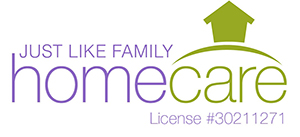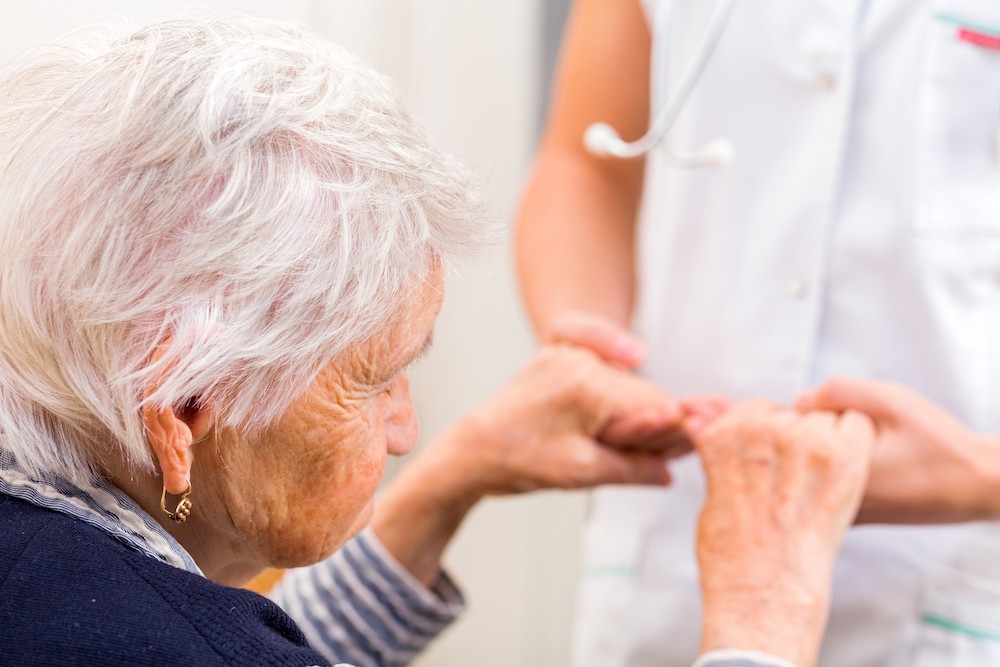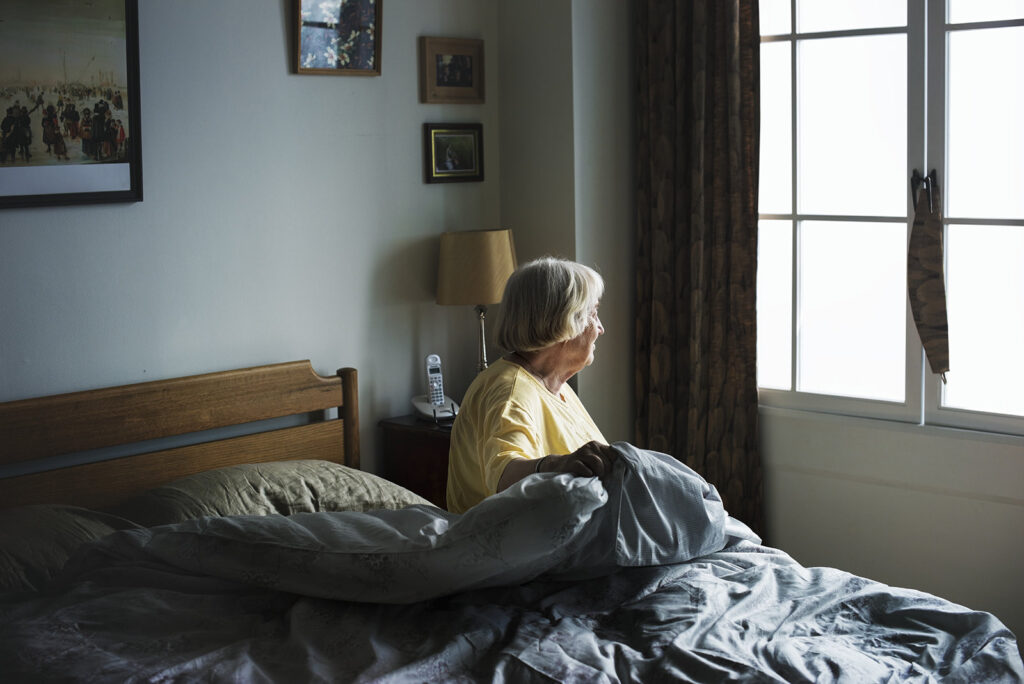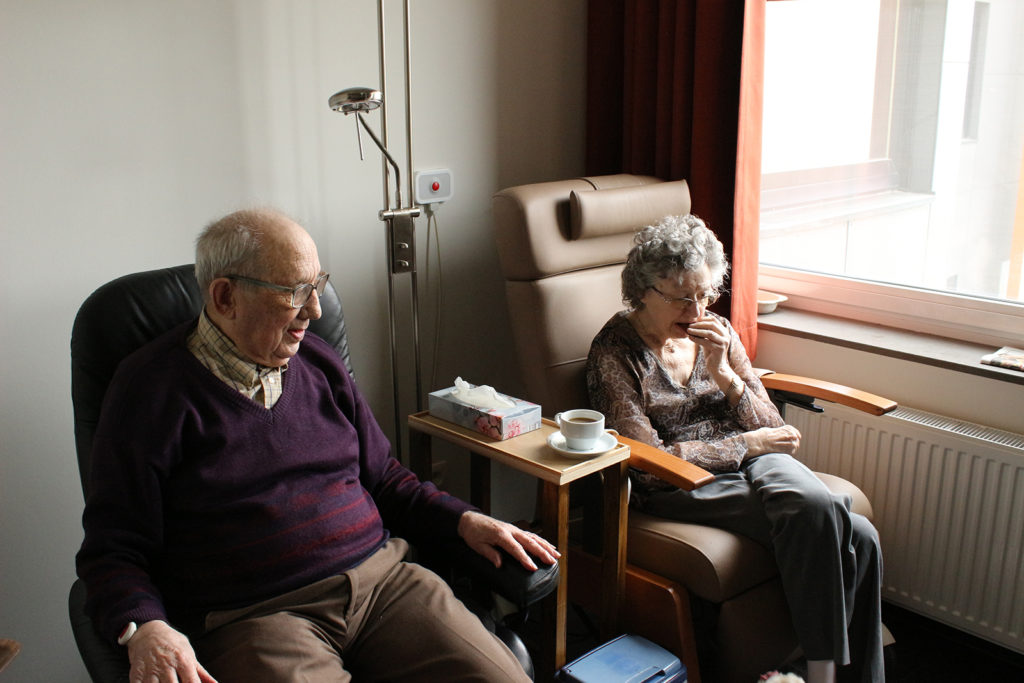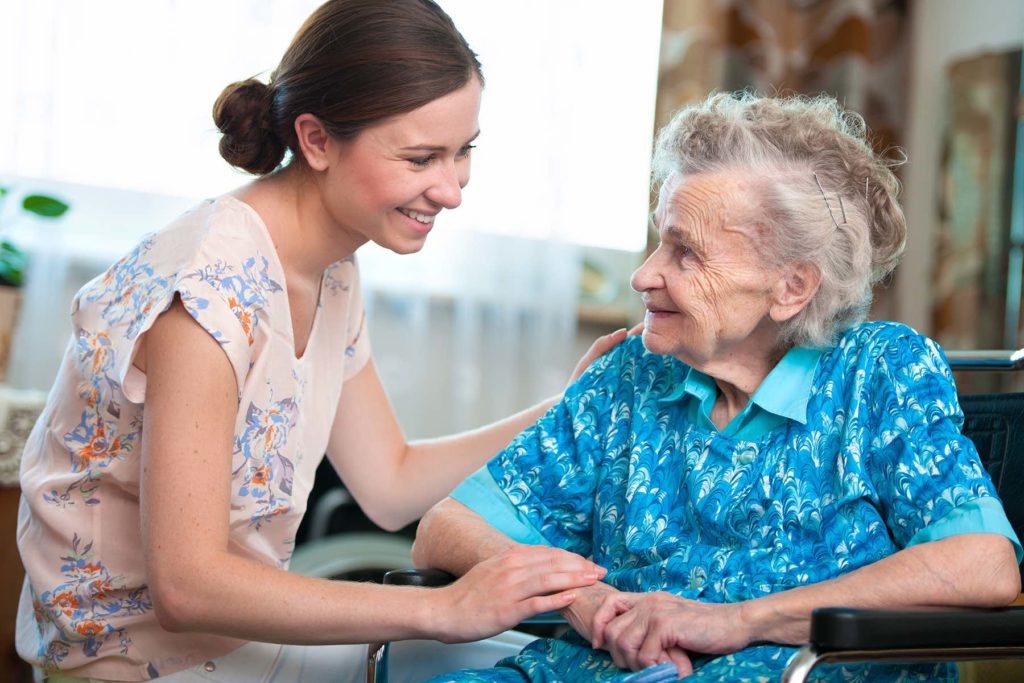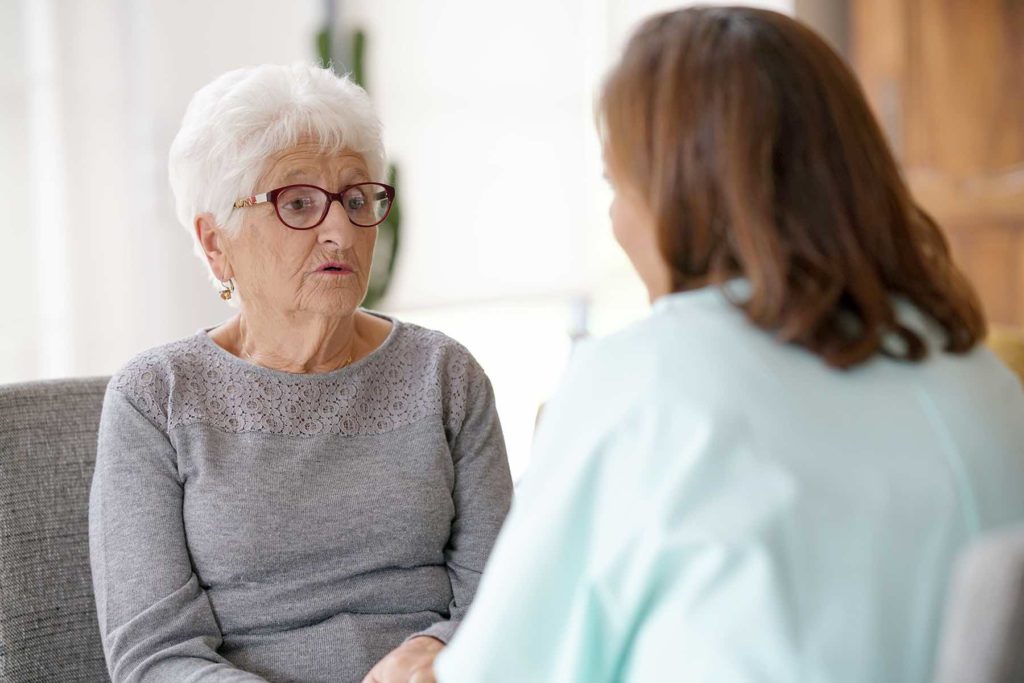Aging
Time for Home Care? Classic Signs That Someone Needs Help
October 13, 2020
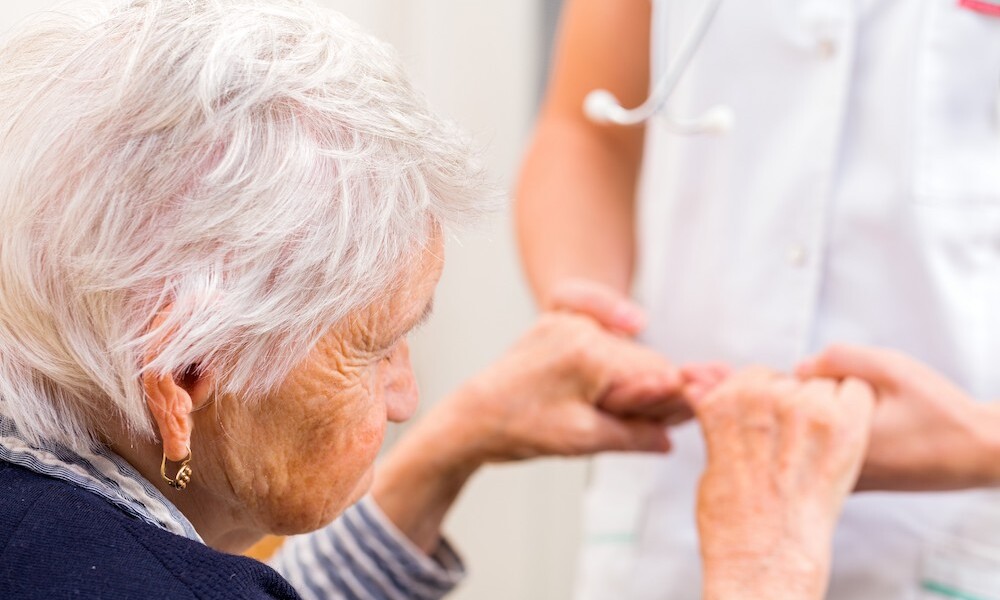
Are you wondering if it’s time to get your elderly loved one the help they need? Do you often find yourself thinking about whether or not to hire a live-in care provider to watch them? If so, then you should consider the signs it’s time to find home care.
It’s never too late to get them the help that they deserve. By looking into senior care, you will experience full peace of mind, knowing that they’re safe.
See below for several signs that it’s time to look into live-in care providers in Naples. It can help you better understand when is it time to get home care for seniors.
1. Not Eating Well
Perhaps you’ve noticed that your elderly loved one hasn’t been eating the same as they once did. Maybe you’ve even noticed that they’re losing a significant amount of weight.
If that’s the case, then they might be skipping out on meals or can no longer operate the kitchen the way that they once did. They might also find it increasingly difficult to run to the store for food items that they need to cook.
A live-in caregiver can give the assistance that they desperately need. They can go out to shop for groceries, come back to the house, and make your loved one the meals that they’ll chow down on.
Once the meal is done, they can also help clean up the dining table and kitchen, wash dishes, and put away all the items for future meals.
Be sure to reach out to a live-in care referral company that can help you find the right caregiver for your loved one’s situation.
2. Slow Recovery Time
Perhaps you’ve grown concerned for your loved one because of an illness or injury that they’ve recently suffered. You have noticed that they’re taking longer and longer to recover from health complications.
These injuries and illnesses might also be more frequent, with no signs of that slowing down any time soon.
If so, then you’ll want someone to be around them 24/7. As much as you’d love to be around them all the time, you still have a career and your spouse/children to care for as well.
Hiring a live-in care provider can help give you peace of mind. Even when you’re not around, there’s a specially-trained and well-educated live-in caregiver that’s watching over them, giving them the best medical attention possible.
Be sure to give your loved one time to adjust to the idea. If you rush them into it too quickly, they might resist the care they’re given.
3. Their Memory Is Fading
Sometimes the biggest sign that your loved one needs help is when you notice that their memory is starting to fade. Sometimes it’s a sign of Alzheimer’s or Dementia, while other times it comes naturally as they age.
No matter what the reason is for the memory loss, it will only continue to worsen. If their memory fails them while no one else is around, it could lead to a very serious situation.
A live-in care provider will work tirelessly to keep an eye on them. They’ve been trained on how to work with patients that suffer from Alzheimer’s and dementia, and how to get them to cooperate in moments of confusion.
4. They Recently Had an Accident
Did your loved one recently fall and injure themselves? Was there a close call that you were (fortunately) there to help them with? If so, then you might be struggling with the eye-opening sign that they need constant supervision.
Not only that, but your elderly loved one might not be comfortable with being left by themselves for any period of time. This is a clear sign that it’s time to get them live-in care from a specialist.
If they were to have an accident while no one was around, then it might lead to a life-threatening situation. They might not be able to reach for the phone to call for help.
5. They Seem Lonely
No one should ever have to feel alone in their own house. As much as you, your kids, and your siblings might try to keep them company, there will always be moments where your elderly loved one is alone.
Not only are those moments a danger to their physical health, but their mental health as well.
Live-in caregivers don’t just focus on giving medical treatment to their patients. They have a passion for taking care of elderly people in need. They will build a friendship with your loved one and find different ways to hang out with them.
That way, even when you’re at work or running the kids around, you’ll know that your loved one is hanging out with a close friend around the clock!
6. They Can’t Drive Anymore
There comes a time where all elderly people can no longer drive. Their worsening health makes it impossible for them to safely operate a vehicle.
With a live-in caregiver, they’ll have access to drive wherever they need to without having to wait for a loved one to pick them up.
That way, you don’t have to adjust your schedule every time they have a doctor’s appointment. The live-in care provider can take them wherever they need to go.
Find the Right Home Care for Your Loved One Today
Now that you have seen several signs that it’s time to get home care for your loved one, be sure to use the right referral service for your needs.
Be sure to read this article for more information on senior loneliness and how you can help them cope with their emotional distress.
For more inquiries, please be sure to reach out via our contact us page and we will be happy to assist you further.
Coping With Senior Isolation and Loneliness
August 18, 2020
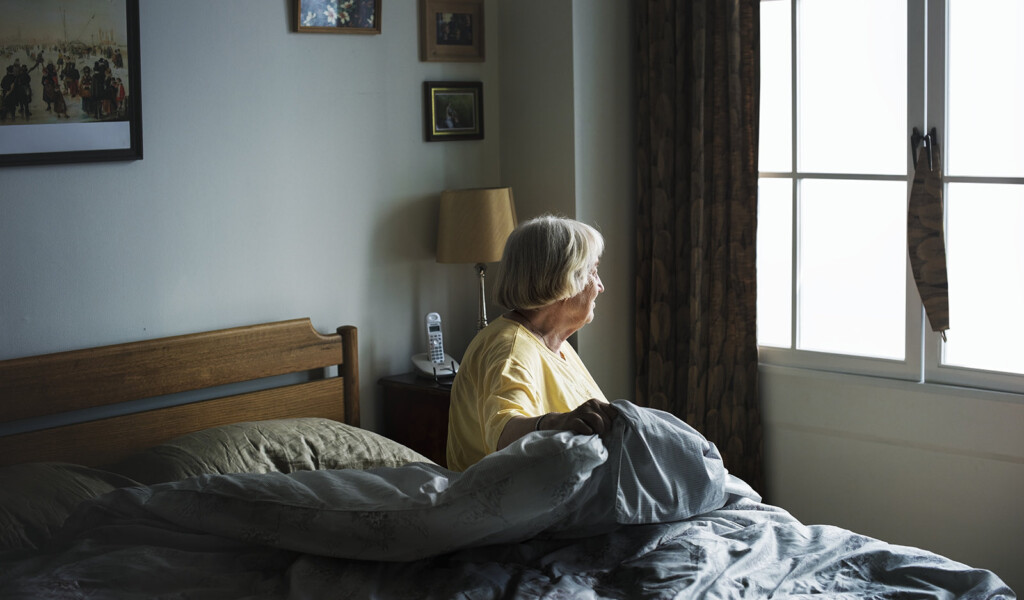
It’s easy for those with hectic lifestyles to forget that isolation is a powerful thing. As you go about your day to day life, you probably long for a quiet moment here and there.
For those forced to deal with long term isolation, the pattern flips. When it comes to senior isolation, activity, care, and a bit of noise are welcome distractions.
In the recent past, studies have demonstrated numerous health impacts from isolation. With the ongoing ravages of the COVID-19 pandemic, you hardly need a study to tell you that restrictions on access to the external world causes problems.
How can you make sure your seniors are coping and being cared for in this dire time? Read on for a rundown of options and services.
Isolation Permeates
It sounds contradictory but the issue of isolation spreads. If you feel cooped up and unable to get out, the people you normally spend time with have one more reason to feel likewise.
For reach link in the chain, the next link is missing a similar connection. For those with only a scant few links to begin with, the loss of a connection hits much harder.
In the US more than 27% of adults over 60 live alone. This number increases every year (of age) and women are 20% more likely to live alone than men towards the end of life.
These figures are a problem in and of themselves, currently, they carry a more dire weight. Isolation directly affects the immune system and especially reduces defense against viruses. Reaching out to those at higher risk of feeling isolated and those who suffer from the many risks of isolation is crucial.
Senior Isolation Risks
Isolation comes with a set of direct risks and indirect risks.
Direct Risks
In addition to the risk of lower viral resistance cited above, other direct mental and physical health effects impact isolated seniors more.
Those left alone often find it difficult to stay motivated or stick to a schedule. These lapses being to mount and produce greater weaknesses. Once a person feels incapable of performing simple tasks due to physical or mental infirmity, they avoid the tasks and, worse, often retreat from situations that might involve those tasks.
This spiral of self-imposed isolation on top of the situational isolation makes it hard to speak out about problems or for those on the periphery to identify issues. Symptoms of progressive but low-grade problems, such as depression, may go unnoticed well beyond the stage where aide can be offered.
Indirect Risks
One of the reasons that seniors are often relegated to homes and assisted living facilities is because they require extra care.
Seniors that go for too long on their own are more prone to accidents and injuries. These injuries may be minor but without proper care, they can become infected or increase in scope.
Typical forms of self-care in adults are problematic enough, in seniors the entrenched reasoning associated with minor poor decisions is worse. Where an adult might overindulge in ice cream after a bad day, a senior is likely to overindulge and then forget about the frequency.
Without anyone watching out for their diet they are more prone to diabetes and high blood pressure from dietary choices on top of the increased risks that present with age.
Senior Isolation Solutions
Preventing issues with senior isolation come in two varieties as well: intervention and coping mechanisms.
Intervention Care
For those with even a single elderly parent to look in on, the time can seem to evaporate, leaving to dos spilling over from one list to another. With the extra time sinks of children at home and remote work, this time feels more crunched.
Looking into senior home care services is a solid first step in creating more time.
Senior home care provides a bevy of options to meet a need and the training necessary to ensure safety for your senior.
Senior home assistance puts an extra player on your team to help cover all the things that you need to get done. They also work to provide the following benefits.
Community Involvement
Being involved with a community (and family) requires more of a remote approach now but is still important. Phone conversations have become impersonal and distant forms of communication. Many families are using facetime and remote viewing technology to keep a firmer presence in each other’s lives.
For seniors, this technology can e difficult to access and maintain. Home care providers or a dedicated setup day both help to make this connection possible.
Keeping seniors working and occupied in some sense also helps. Volunteer activities in your area always need hands and time. Pick up and drop off of bulk materials in need of processing can be rewarding and lowkey for seniors.
Transportation
The biggest factor in feeling isolated is often feeling trapped. Even if you have nowhere to go, the ability to go provides comfort.
Taking a drive to see the country or to a quiet place for a light walk can feel like a relief after days at home. Even being in a vehicle for the purpose of running errands gives a senior a chance to experience a change of scenery and feel the wider world at work.
Medical Visits
Preventative health and frequent checkups are both needed to give a senior in peak shape for longer. However, both of these types of visits are extra frustrating right now.
They often take extra time from backlogs in offices or are being conducted remotely through apps. In either case, in-home assistance for the elderly makes a difference in keeping these appointments flowing. Whether this is setting up a computer for the purposes of a remote visit or sitting with them in a safe environment while waiting for a test, having someone there has a big impact.
Meals
cooking for one is already difficult. Having the energy to cook is an added issue. Finding the wherewithal to cook for one when bored and annoyed tends to lead to poor meal decisions and high levels of snacking.
Meal preparation is a rewarding way to spend time with a senior and to provide them with assistance that isn’t overbearing.
Get them in on the planning of meals and prep the difficult pars so that they can complete meals on their own.
Incontinence
Issues with incontinence are some of the most embarrassing and frequently cited reasons that seniors self-isolate.
Nobody likes to need help in general, but it’s especially tough for the more intimate issues. Having a frank discussion with a senior and planning for ways to deal with incontinence helps provide autonomy.
Just Like Family services offers experience in broaching this topic, enabling a senior to engage in social situations with confidence.
Interests
Engaging in a pastime that feels reward is difficult when there is nobody to share it with. Many pastimes are social in nature and those that don’t have social components.
Art projects and crafts need a reveal and an audience to not feel like busywork.
Engaging with a senior periodically gives them a reason to work in the time between visits. It’s important to both generate an interest and to support that interest by being interested yourself.
Coping Mechanisms
Senior home care services and direct intervention in senior lives are important. It’s much more difficult to feel isolated and to fall into the damages therein when they’re not isolated.
But nobody has infinite time and there are instances when seniors will be left alone. To stave off the problems it’s important to develop coping mechanisms and systems with your senior.
Remember that you also need to learn to deal with isolation for coping with current events and your own future.
Pets
A pet is a constant companion that fills the void with noise. Pets provide a lot to humans, it’s why they’re so prolific.
However, a pet also takes time and effort to care for. Don’t select a pet that will be a big burden. Avoid breeds and animals that are fragile or high-strung.
Exercise
Exercise sharpens the mind and the body. Exercise also feels like an enormous chore that nobody ‘wants’ to do.
Building an exercise routine for the whole family is a great way to keep yourself and seniors interested. Start a competition (friendly, of course) to encourage everyone.
When people move they feel better. Just Like Family knows how to keep it positive and about the doing, not the results.
Purpose
Finally, remind seniors that they have a purpose. It’s far easier to put in the effort today if it is part of a whole. People need to know that they matter and that the things they do matter.
Even the hardships you face must count for something (especially the hardships). Talk about your hopes and dreams and suss out what is next on the list of accomplishments for your loved ones.
Don’t focus too mucho n the now of survival but the tomorrow of doing and being more.
Be More
Senior loneliness is a problem that has needed to be addressed for years. Too often senior isolation is a product of a world too busy to care. Right now, with so much happening, taking the extra time to let a senior know that you care and are working with them makes all the difference.
For more information about senior home care and referrals, contact us.
Professional Care for Your Aging Loved Ones in the Comfort of Their Own Homes
November 22, 2019
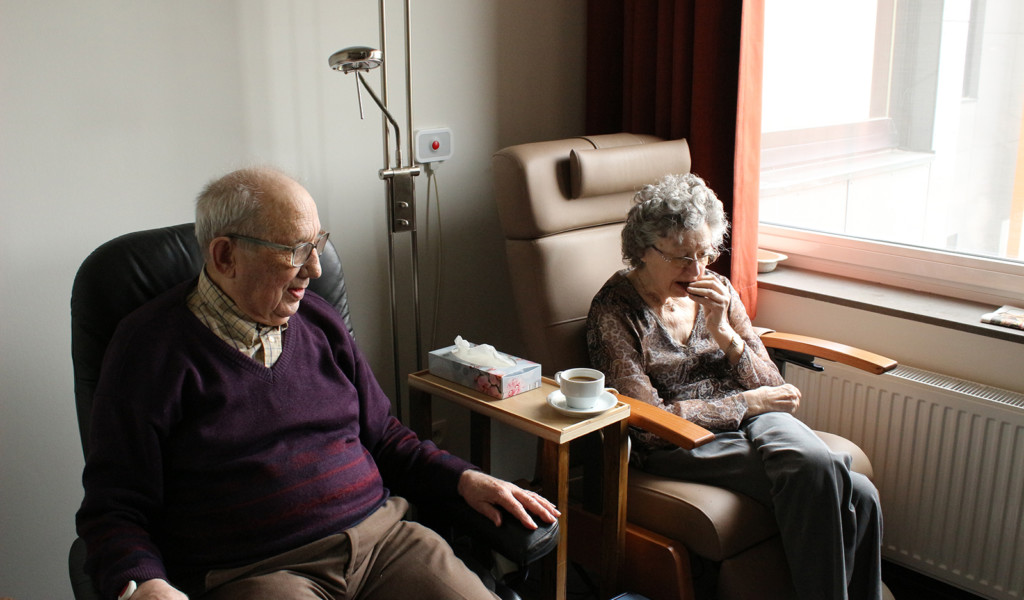
Watching your mother or father age and slowly lose their independence can be challenging, if not heartbreaking. You grapple with issues like when is it time to step in and offer assistance, and how much assistance do they need? Are they able to drive themselves to their doctor’s appointments? Can you honor their wishes and keep them in their home? These are not easy issues to consider, and Just Like Family Home Care is here to help.
Maintaining Familiar Surroundings
It can be a very difficult transition for your loved ones to have to leave their homes in order to receive the care they need. Mom may already be upset because she is losing her mobility, mental capacity, or ability to remain 100% independent. Dad knows it’s important for Mom and him to enter their golden years in familiar surroundings, like the home they created for themselves. The neighborhood, their place of worship, their social groups and friends are central to their happiness. So why not try to keep them where they will prosper the most.
Of course, they will need assistance with day-to-day activities of life – meal preparation, grocery shopping, housekeeping, exercise assistance, bathing, dressing, driving, caring for pets – the numerous things that compose our daily lives.
Fortunately, this is where Just Like Family Home Care comes in. We can offer the help and support your loved ones need by referring qualified caregivers to come to their home and help them live the most independent life they are able to. Caregivers can also provide immediate help in case of an emergency, such as a fall or a sudden illness. We can provide short or long shifts, or even around the clock care.
Conversation and Companionship
An important role of an in-home caregiver that is often overlooked is companionship and friendship. Oh, just to have someone to play cards with, to walk and talk with, or to watch their favorite shows together! A private caregiver is, perhaps more than anything, a friend to people who truly need one.
Peace of Mind
By having our referred caregiver assist your loved ones, you should find relief in knowing your parent is being cared for in a one-on-one environment in the comfort of their own home.
Now that’s peace of mind!
For more information visit us at http://justlikefamilyhomecare.com or call us at 239-431-6661.
Aging at Home
August 13, 2019
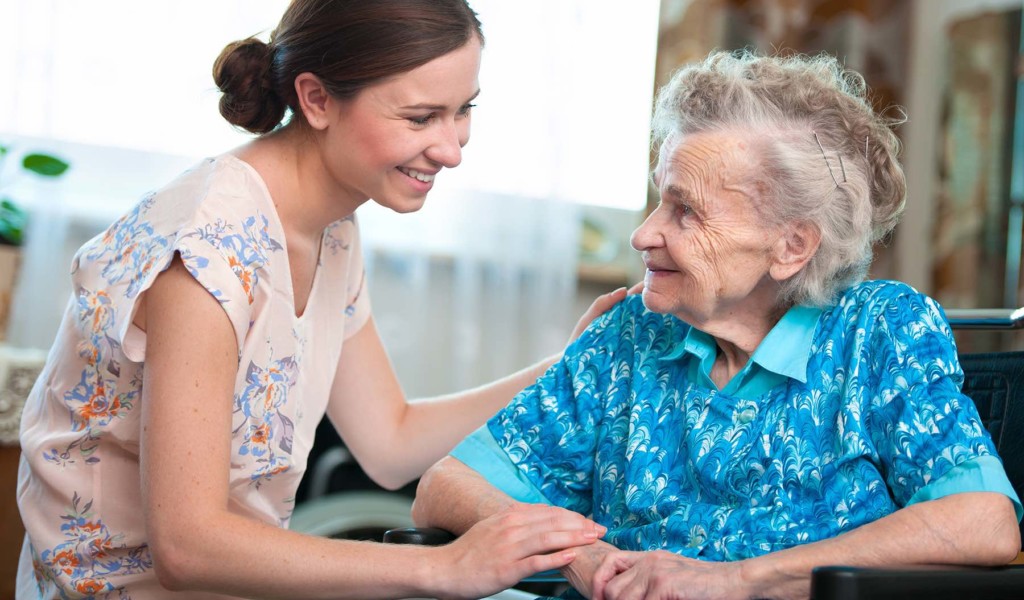
Aging at Home
Recent surveys show that nearly 90% of seniors hope to and plan to live in their current home for as long as they live, now termed “aging in place.” Some have lived in the same house for years or moved into their current home after retirement, to be closer to family, moved to a smaller home that is easier to maintain, or to have access to activities that suit their current lives. In talking to our clients, and our family members, we found that their experience and motivation mirrors what current research says relating to the benefits of staying home, even in cases where some outside assistance is needed for short or long term.
Benefits of Living at Home
Comfort, independence/control:
When a Senior stays in their residence, they are in a place that is comfortable and familiar to them, with neighbors and friends accessible. They make their own rules, eat what and when they want and watch the TV shows they want. They relish the independence they have, and many dread the thought of someone else setting their schedules. They also feel safer in their own home, both in terms of the physical comfort of getting around a place they know very well, and in having neighbors who can help. A sense of pride is often mentioned by seniors who retain their independence. Finally, research tells us that those with medical issues recover more quickly and retain their health after recovery when home-based.
Personalized care
If a senior needs assistance, that care is provided one-on-one. That undivided attention for only what is needed versus every resident getting the same treatment is often mentioned as a preference of seniors. Also, the attention is scheduled for when the senior wants the help, not when it is convenient to a caregiver juggling many others.
Affordability
The cost of senior care in nursing homes or assisted living centers can be very high. A recent study showed the average costs of assisted living and nursing homes can range from $50,000 to $100,000 a year. Staying home and having assistance when needed is relatively inexpensive, especially since you only pay for the hours you need. 24-hour care is still possible in the home if needed, but significantly less expensive than paying for a room in a facility.
Human Companionship
Having friends and family accessible is one of the most popular responses as to why seniors prefer staying in their home. Whether they chose to stay in the family home near family and friends, or if they move into a neighborhood heavily populated with seniors, having interaction with others is critical. Personalized caregivers can play a role in the socialization of the senior, but that interaction can be scheduled to fit the senior’s wishes, rather than a center’s schedule.
Animal Companionship
One issue that many seniors bring up when discussing their living preferences, is their desire to have a loving pet in their home. A dog or cat is the most common pet. For those with dogs, they need to get out and walk the dog which is especially good for the senior, providing not only exercise but the ability to connect with neighbors.
New Technologies
In today’s technology and delivery based world, there are many new options to help seniors “age in place.” In a recent blog post, we discussed the use of technology to have face-to-face conversations with family and friends. Other technologies that can provide the senior with access to needs:
- Technology-based ‘emergency alert’ systems, also discussed in a prior blog.
- Access to voice-activated technologies such as televisions and telephones that run via voice commands.
Fortunately, more and more seniors and their families are finding that home care is possible, especially with the help of companies like ours. Just Like Family Home Care is proud to offer Lee and Collier Counties referrals for sensitive, discreet personal care for our clients to help them better enjoy life at home. Care providers are carefully selected for their compassion, professionalism, and dedication to providing the best care possible.
Disclaimer: The blog entry above has been created utilizing different online sources. The blog entry has not been verified by a doctor. Please note that conducting the above-mentioned activities is at the individual’s own risk and responsibility. Please always consult a doctor before exercising or doing any physical activity, especially to avoid injuries or harm due to unknown preconditions. Just Like Family is not responsible for any injuries while conducting the above activities.
Communication Skills with Seniors
February 28, 2019

Improving communication skills is good for all of us who are involved with seniors, and for the seniors themselves. While much as been written about communications skills in general, this particular topic isn’t addressed as often. Some of the most common statements made by senior citizens about communication issues are:
- Please don’t yell at me, just talk a little louder and don’t mumble.
- Please don’t call me Sweetie, Sweetie Pie, Young Lady, Young Man, or any other child-like name.
- Please don’t say things that make it sound like I am about to die.
Let’s look at the three components above:
- The physical act of communication can be a barrier to a good conversation, especially for those with a hearing loss.
Per the Gerontological Society of America’s(GSA) CEO, James Appleby, “two-thirds of adults 70 and over have a hearing loss that affects their daily conversation…. Leading to isolation, depression.” Hearing loss, however, doesn’t mean yelling is the solution.
In addition to hearing aids, there are strategies to enhance communication with someone with even a slight hearing loss. A Cleveland Clinic guide to improving communications suggests the following:
- Gain attention: saying the person’s name, or giving a light touch to let the person know you are there.
- Maintain eye contact: facial expressions and body language are critical pieces of conversations.
- Avoid covering mouth: Most listeners make use of lip-reading. Covering your mouth and chewing make that difficult.
- Speak naturally: shouting is not helpful, nor is mumbling. Speak distinctly and at a normal rate. Pausing may help the person process the speech.
- Avoid background noise: turn off the TV or the radio.
One final note on the physical act of conversation, remember to talk TO the person directly. A pet peeve of seniors is hearing a visitor ask someone else “how is he or she doing”… as if the person cannot hear. Another pet phrase that is annoying, “how are WE doing.” These phrases make the person feel non-existent, versus “how are YOU doing” which makes them feel valued.
- The tone of communication can be another barrier to conversation.
Would you like to be addressed in a way that sounds patronizing, or as if you were a small, cute child? Probably not. You want to be addressed as an intelligent partner in a conversation. Seniors want to be treated the same way. Calling a senior ‘sweetie’ implies you think that person is ‘cute’ which indicates a lack of respect for the person.
Taking this a step further, the GSA has a guide to communicating with older adults, which encourages us to use the same vocabulary we use with other adults. The report says “as a general rule, older adults maintain their existing vocabulary or continue to improve it. They have no greater problem understanding complicated words than do members of other age groups, so there is no need to simplify the words you use.”
- Finally, let’s discuss the conversation itself. Sometimes we are uncomfortable with talking to seniors, as we don’t think we have much in common.
Some thoughts to consider:
- Seniors do not feel their age the way you may think they would. Let’s say you are 40, it is probably safe to say you still feel like you are 25 in your head. Seniors feel the same. A 75-year-old probably feels like a 40-year-old inside. Your conversation can and should be just like when you talk to any adult. Talk about current events, recent sports stories, etc. You ask questions, but you also let them know about you.
- Seniors do not approach each day as one more day before they die, it’s just today. Don’t ask questions or talk so it sounds like you are writing their obituary or ‘taking stock’ of their life. As an example, “what do you wish you had done by now and haven’t” might be a good employment interview question, but to a senior, it can sound like you are trying to assess their lifetime value.
So, what are good conversation starters? Here are some ideas.
- What is your favorite food, and has that always been your favorite?
- Do you have a favorite holiday? Why that one?
- Do you like to read? What type of reading (books, magazines)? Prefer printed materials, online, or audio?
- How did you meet your wife/husband?
- Have you traveled much? Where?
- Have you always lived in this location? Where else?
- When you were a child, what did you do for fun? Any sports?
- Do you have a favorite movie? TV show? From now, or earlier.
- Did you work, and if so, what was your favorite job?
- What technology do you like? Or what do you wish was never invented?
- Do you have a favorite College/University? Did you attend there?
- I am struggling to decide XXX, have you experienced that?
- Do you have any hobbies, or some you used to have, or some you would like to start?
Is it memory loss, Dementia or Alzheimer’s?
December 26, 2018

As we age, most of us will feel that we have become more forgetful. The term “senior moment” has even become a common phrase to express how that feels when we forget why we went into a room, a friend’s name, or where the keys are. For most of us, these events are normal. It is also normal to feel that one’s memory is declining after age 65. That decline is annoying but normal, and strategies to improve memory are available. Our December 4, 2018 blog shared some popular ones. However, if you or your loved one seems to have a feeling that memory is declining, medical providers should be alerted.
The National Institute on Aging (NIA) defines dementia as “the loss of cognitive functioning—thinking, remembering, and reasoning—and behavioral abilities to such an extent that it interferes with a person’s daily life and activities.” At its most severe stage, the person depends “completely on others for basic activities of daily living.” Many different diseases can cause dementia, and drugs are available to treat some of these diseases.
Alzheimer’s Disease is the most common cause of dementia, accounting for 60-80% of dementia cases. Alzheimer’s Disease is a progressive disease with symptoms worsening over the years. The Alzheimer’s Association provides an early detection list of 10 warning signs, along with changes that are normal changes as we age at this site: https://www.alz.org/media/Documents/10-signs-checklist.pdf, but is summarized below.
The signs include:
- Memory loss that disrupts daily life (vs. forgetting names and appointments)
- Challenges in planning or solving problems (vs. occasional errors when balancing a checkbook.)
- Difficulty completing familiar (daily) tasks (vs. needing help to use the microwave.)
- Confusion with time or place (vs. confused about the day of the week, but figuring it out later.)
- Trouble understanding visual images and spatial relationship (vs. vision changes due to cataracts.)
- New problems with words in speaking or writing (vs. having trouble finding the right word.)
- Misplacing things and losing the ability to retrace steps (vs. misplacing things from time to time and retracing steps to find them.)
- Decreased or poor judgment (vs. making a bad decision once in a while.)
- Withdrawal from work or social activities (vs. feeling weary of work, family or social obligations.
- Changes in mood and personality (vs. developing specific ways of doing things and becoming irritable when a routine in disrupted.)
Just Like Family is a home health care provider in Naples always focused on the well-being of clients, trying to help them stay independent in their own home.
Disclaimer: The blog entry above has been created utilizing different online sources. The blog entry has not been verified by a doctor. Please note that conducting the above-mentioned activities is at the individual’s own risk and responsibility. Please always consult a doctor before exercising or doing any physical activity, especially to avoid injuries or harm due to unknown preconditions. Just Like Family is not responsible for any injuries while conducting the above activities.
